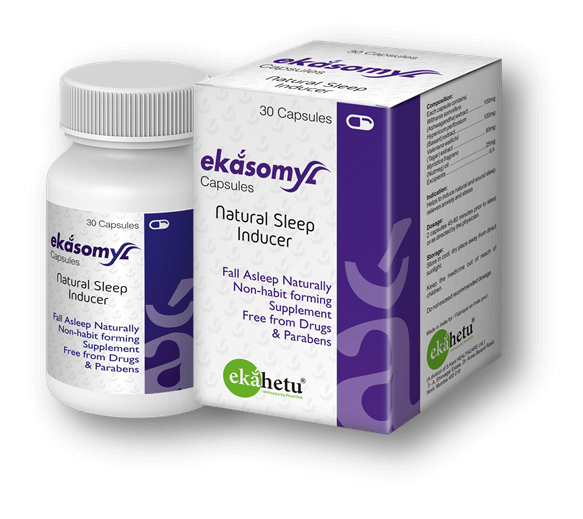Withania somniferaThe root & whole plant extract of Ashwagandha (W. somnifera) has been used to induce sleep in Indian system of traditional home medicine, Ayurveda. The water extract, which contains triethylene glycol as a major component induced significant amount of non-rapid eye movement sleep with slight change in rapid eye movement sleep. Triethylene glycol, an active sleep-inducing component of Ashwagandha is useful for insomnia therapy. Ashwagandha is believed to mitigate stress and correct imbalance of various nervous systems.
Myristica fragransM. fragrans (Nutmeg) is effective drug in managing insomnia. Dating back to the 16th century, nutmeg has been known for its psychoactive properties, which include anxiogenic activity. In pregnancy and lactation, nutmeg is used in traditional medicine practice for antenatal and postnatal treatment. M. fragrans extract exhibited better/equivalent effect to that of imipramine at the dose tested in Forced swimming test (FST), Reserpine reversal test (RRT), and Haloperidol-induced catalepsy (HIC) in rats, the drug is rated to possess potentially significant antidepressant activity. The antidepressant-like activity of M. fragrans might be due its modulatory effect on central monoamines.
Valeriana wallichiiThe water extract of V. wallichii (Tagar) has a sleep quality improving effect, which may be dependent upon levels of monoamines in cortex and brainstem. In one of the clinical study, Tagara provided significant improvement in initiation of sleep (76.00%; P < 0.001), duration of sleep (55.17%; P < 0.001), disturbed sleep (69.58%; P < 0.001), and disturbances in routine work (73.95%; P < 0.001). Jatamansi provided improvement in initiation of sleep (61.34%; P < 0.001), duration of sleep (48.25%; P < 0.001), disturbed sleep (53.08%; P < 0.001), and disturbance in routine works (43.85%; P < 0.001)
Hypericum perforatumSt. John’s Wort is a perennial flowering plant native to many parts of Europe and the U.S. It has been used for centuries for its pharmacologic properties in fighting depression, insomnia and anxiety. St. John’s wort may stimulate the GABA receptor, a key gateway for sleep-inducing chemicals in the brain. It also provide stimulus for the production of serotonin or limit serotonin reuptake similar to some of the common anti-depressants on the market currently. Various studies on the use and effectiveness of St. John’s wort have been conducted over the years with varying results, but user benefits are mostly valuable.

